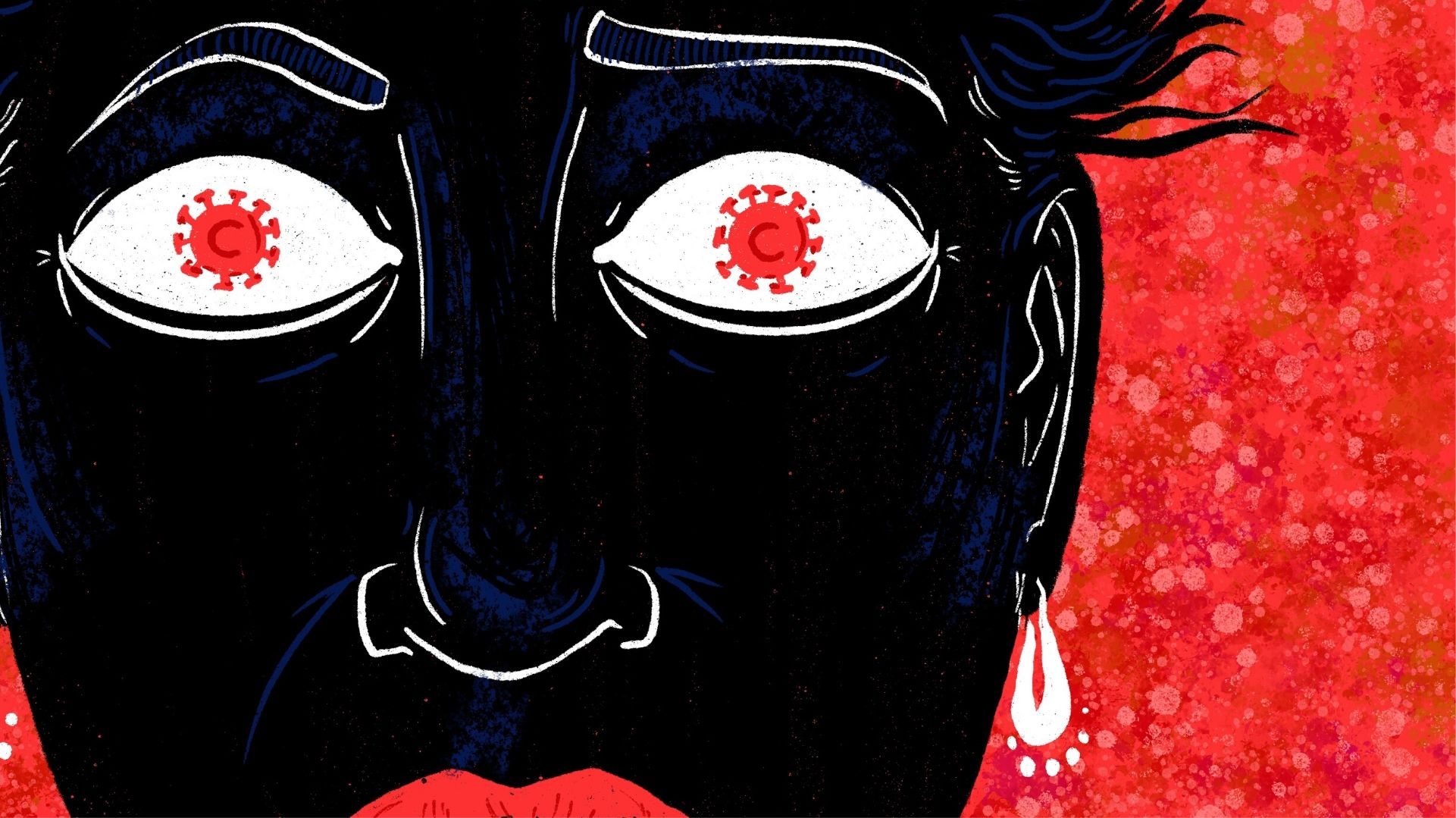Trigger warning: This essay contains graphic descriptions of OCD that may be distressing. Reader discretion is advised. “What all would you buy and stock up on if your country goes to war, and everything shuts down?” a guest lecturer quizzed us in one of our sessions at J-school on war reporting many summers prior to the one that saw his prophetic words come true. ‘Soap’, I wrote down as if on cue, with the word instinctively flowing from my mind onto the paper, ranking itself above rice or bread, or even drinking water. I’d been in wartime for long — with my skin, with every surface I touched or beheld. Barely three years ago, I would have failed to recall a time when sanitisers wouldn’t feature at the top of my weekly grocery list, hoarding them compulsively in every colour, fragrance and container size. During the lockdown, my collection would easily have lasted me four months, five if I’d cut down to sanitising my hands once every three hours; six if every four. On Firstpost:
Coronavirus outbreak poses rising mental health concerns, as experts develop therapeutic frameworks to meet the challenge
As terror over the coronavirus spread faster than the contagion itself, I found myself breaking into a sweat and receding into a familiar hole of nothingness. I’d scrub this hole clean of germs that didn’t look benign in fluorescent green, but were sickening and rotting like maggots, writhing up my hands, my neck, probably making their way into my brain. This image had been a fixture in my life since 2013 until late 2017, as my
OCD
-riddled brain pushed me into hypochondriasis and crippling germophobia. It hijacked my life until intensive therapy rescued me. As I type this out feverishly in 2020 with glove-wrapped fingers amid a pandemic, I sense my mind punctuate every thought with the words ‘germs’ and ‘death’ yet again. And we’re only just getting started. [imgcenter]
And yet, I’d never prayed harder for a hotter, more punishing summer, hoping against hope that the rumours of heat killing the virus would prove to be true.
And so it happened. Germophobia got the better of me, and I was spiralling down the familiar chute at breakneck speed once again. *** What is evidently different this time around, however, is how my relapsing condition has been curiously prescribed as the only preventive measure against the fatal virus holding humanity hostage. By Murakami’s logic, this world has now been irreversibly transformed into a frenetic soap-guzzling monster, and I am no longer an oddity. But that thought is far from comforting. It makes me queasy to not have a mundane normal to go back to, with the rules having changed for good, and no end date in sight. For the first 10 days, I could barely convince myself to forsake my purging routine, despite the flesh on my hands oozing, stinging and blistering in mind-numbing pain. I’d panic at the thought of my injured skin getting infected, thereby thrusting myself back into the 20-second wash-and-singalong-drill again. I’d been hit by a double whammy, stuck in an unbreakable loop. At one point, I remember thinking to myself that death, perhaps, was easier. It had to be. Countless hours of therapy and several tubes of ointment later, as I now watch the skin on my palms heal, I wonder how I accomplished the seemingly ordinary in the longest week of my life. Clocks and calendars lay redundant, as I kept track of time by the intervals at which I’d have to wash my hands and scrub my home and vegetables. The gaps ranged anywhere between 10 and 20 minutes, depending on how disfigured my hands appeared to me at that moment. More the contortion, more frequent the washing, until I nearly passed out in blinding pain. ***
The thing about perpetual anxiety is how it bludgeons you in the face day-in day-out, mercilessly, relentlessly. Irrespective of how often you encounter it, the novelty of its horror remains unweathered.
As the virus gathers steam, and government diktats on social distancing, self isolation, and hand washing like clockwork (most of which I’ve done religiously as a dedicated germaphobe, well before they were public mandates) grows louder, troubling questions on this new order begin to nudge at my insides. I’m reminded of what my therapist had told me several years ago, about “acting upon an urge” being the key to my condition. She’d assured me that on most occasions, I’d refrain from pulling the metaphorical trigger. However this time, the trigger entails forcibly ridding myself of virulent toxins, which may or may not have lodged themselves under my fingernails — an urge that I have been encouraged to act upon by authorities world over, in order to stay alive. The stakes are too high, I decided, and I’d much rather take the bullet and suffer a bloodbath on my hands, than witness the one that would ensue if I failed to rinse on repeat. But the question was, for how long? Soaping one’s hands might be effective, but it’s clearly not enough. As migrants die on the streets in the hope of reaching home before hunger kills them, even if COVID-19 doesn’t; as healthcare workers wait to get their hands on proper protective gear; as the aged await their turn at hospitals to get tested; as people are left in the lurch by incompetent governments band-aiding their way through crumbling healthcare systems — the mental cost of the crisis borne by each of us comes to the fore, germophobe or not. Also read: As mental health experts respond to coronavirus crisis, filling gaps in service delivery needs govt accountability
)